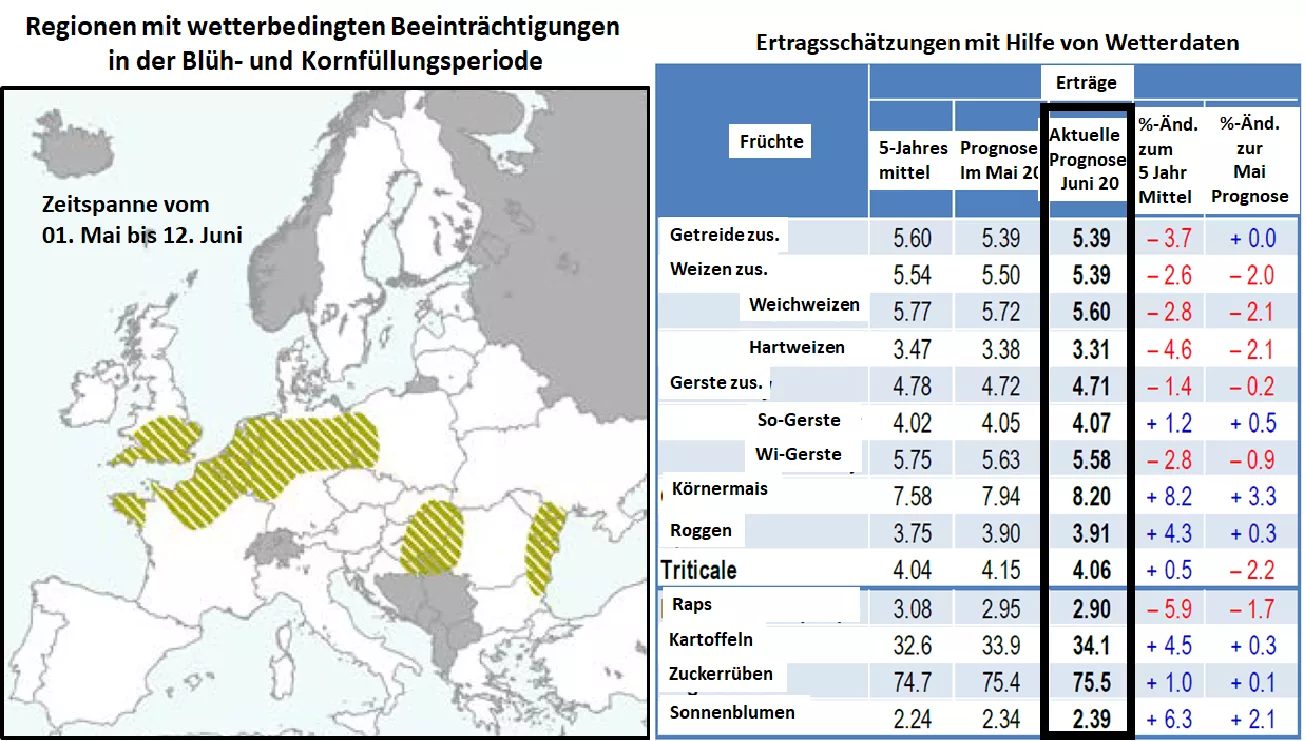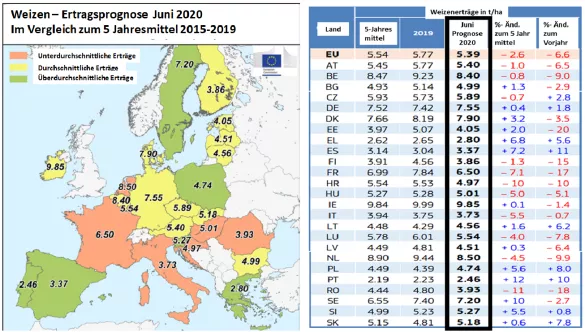MARS corrects yield forecasts for the EU harvest 2020 between -2.2 to + 2.1%. The Agricultural Meteorological Institute of the EU Commission (MARS) has corrected its monthly yield forecasts based on the current climate data analysis. For cereals as a whole, there were no changes compared to the previous month, but the average yields are -3.7% below the 5-year mean. Downward corrections for wheat were made by -2.1% on the previous month. Winter barley was rated 0.9% and triticale 2.2% lower. In contrast, the MARS experts expect 3.3% higher maize harvests. Compared to the 5-year average, K. maize should do 8.2% better. Rapeseed yields were again estimated to be 1.7% lower than in the previous month. In comparison to the 5-year average, the rapeseed slips by almost 6% and by far has the worst yield prospects. Potato yields should cut 4.5% above the multi-year average. Also Z.- Beets are above average with +1%. For the special growing regions for sunflowers, a yield increase of +6.3% in a multi-year comparison is predicted. Background for the weaker yield forecasts are the lack of precipitation in large parts of Central Europe, especially in the flowering and grain formation phase. The most recent rains come too late for most winter seeds. This affects the eastern parts of France , central and northern parts of Germany , western Poland and the south- east European countries . (see map) It has not yet been possible to adequately determine what effects late night frosts will have on yield. Comparatively favorable climatic conditions were found in the western parts of France, Great Britain and all of Spain . The rest of Poland and the whole of Sweden also benefited from the regionally favorable weather conditions.In these areas, the rain reached up to 60 mm of precipitation. This noticeably increases the EU average yield. For Germany as a whole, only average yields are calculated, with less favorable locations balancing themselves with better regions. The climatic conditions around the Black Sea are already becoming alarming. The persistent dryness leads to wilting and premature ripening with weak grain formation. In contrast, the countries on the North African Mediterranean coast have received predominantly high rainfall. However, the rain in the Maghreb countries came a little too late to have a positive impact on earnings. The North African countries are importing countries that are usually supplied by the EU. Sowing of the summer crops has taken place fairly quickly under the dry conditions, but the insufficient moisture leads to considerable problems with emergence and further growth.The growth on the grassland remains below average due to the scarce rainfall. Bottlenecks in basic feed can no longer be ruled out this year.



